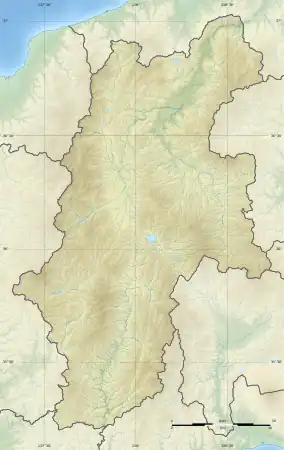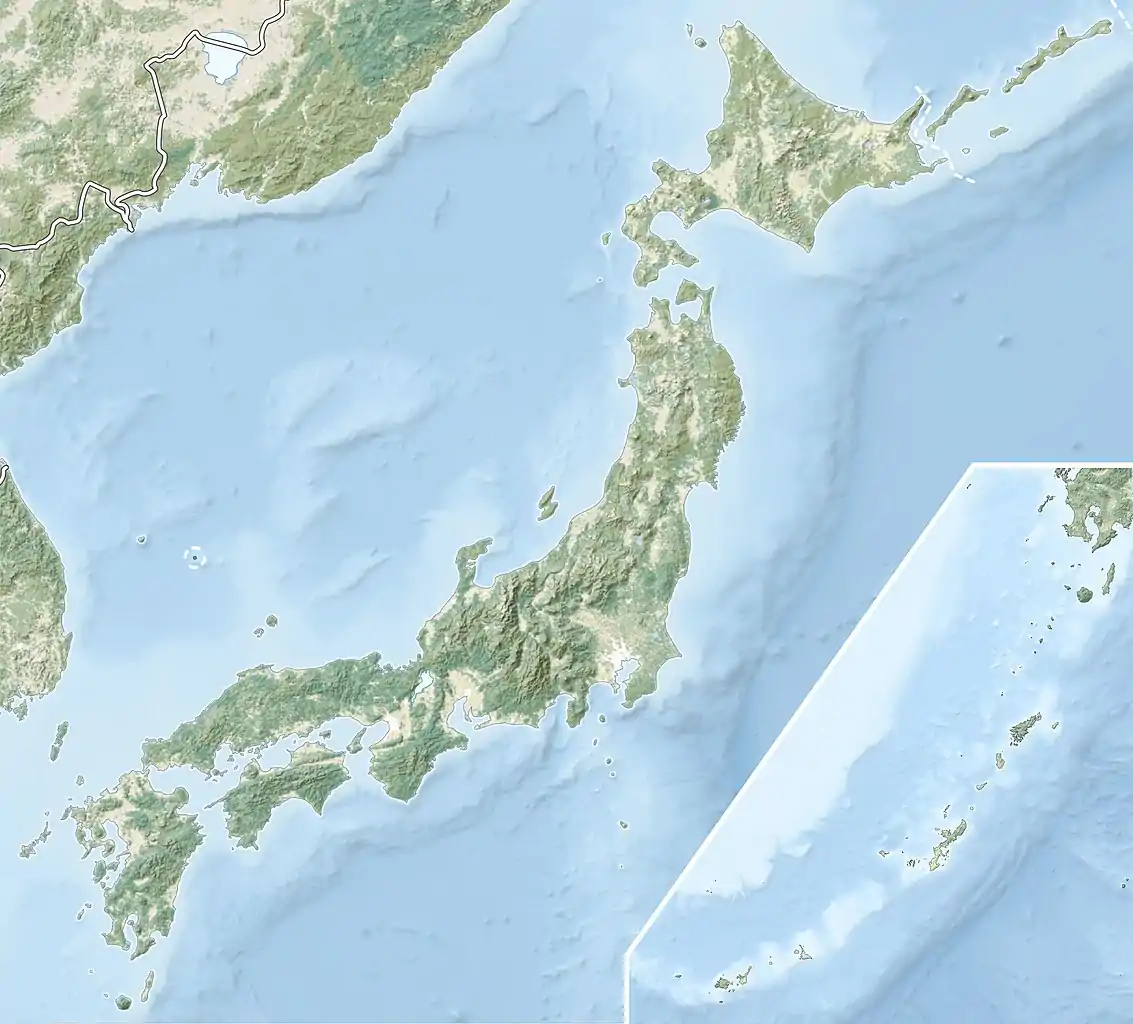星ヶ塔黒曜石原産地遺跡 | |
 Hoshigatō obsidian mine site  Hoshigatō obsidian mine site (Japan) | |
| Location | Shimosuwa, Nagano, Japan |
|---|---|
| Region | Chūbu region |
| Coordinates | 36°06′12″N 138°06′36″E / 36.10333°N 138.11000°E |
| Altitude | 1,500 m (4,921 ft) |
| History | |
| Periods | Jōmon period |
| Site notes | |
| Public access | none |
The Hoshigatō obsidian mine site (星ヶ塔黒曜石原産地遺跡, Hoshigatō kokuyōseki gensanchi iseki) is a Jōmon period archaeological site consisting 193 shallow interconnected pits over a 35,000 square meter area, from which obsidian had been mined, located in what is now part of the town of Nagawa in the Chūbu region Japan. It has been protected as a National Historic Site since 2015.[1]
Overview
The Hoshigatō site is located northwest of slope of Mount Kirigamine at an elevation of 1500 meters, within the Higashimata National Forest in the northeastern part of Shimosuwa. Obsidian, or "volcanic glass" was frequently used for stone tools and weapons in the Japanese Paleolithic period as it could be fractured by lithic reduction to produce sharp blades or arrowheads, and frequently occurs in volcanic formation around Japan. Archaeological excavations have found that obsidian was extracted from this location from the early Jōmon period (about 5700 years ago) through the late Jōmon period (2000–1000 BCE). Physicochemical analysis has found that obsidian from this site was supplied to settlements distributed across an extremely wide range from Tōhoku to the Tōkai region, indicating long distance trade. The site was discovered in 1920, and was excavated from 1959-1961, and again in 1997.
There are no public facilities at the site and access is controlled by the Shimosuwa Town Board of Education.
See also
References
- ↑ "星ヶ塔黒曜石原産地遺跡". Cultural Heritage Online (in Japanese). Agency for Cultural Affairs. Retrieved 25 December 2017.(in Japanese)
External links
- Shimosuwa town official site (in Japanese)